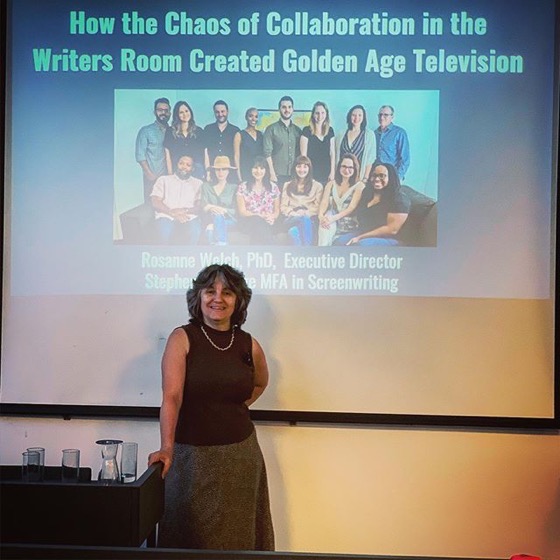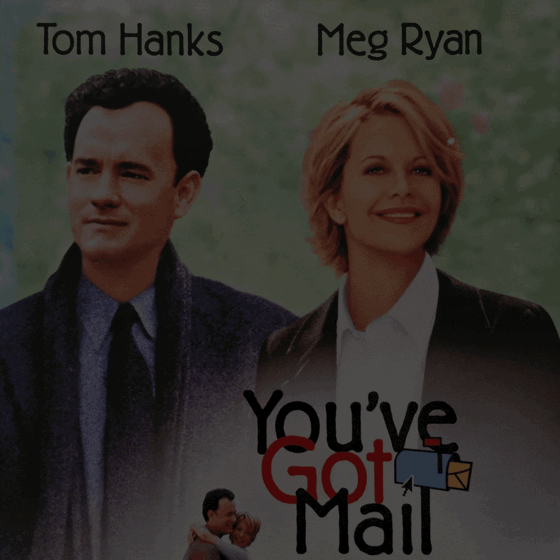Subscribe to Rosanne’s Channel and receive notice of each new video!
When the folks hosting the conference announced their theme as “Screen Narratives: Chaos and Order” the word ‘chaos’ immediately brought to mind writers rooms. I offered a quick history of writers rooms (the presentations are only 20 minutes long) and then quoted several current showrunners on how they compose their rooms and how they run them.
Transcript
Something’s missing in these early writer’s rooms. What’s — who’s not in that picture? Audience: Women. Uh-hum. it’s kind of obvious, you know, so we had these shows that we admire greatly but they didn’t have a female perspective. Hello? They were missing and their opinion is missing and I think that’s a problem. But then along came Buffy and Buffy had a staff that included many female writers — some of whom are now credited with giving it the feminist bent that it had. Joss Whedon may have started the show but now we also know that — like Woody Allen — there are things we don’t like about him. So it seems it was the women on the staff who maintained that feminist idea right up to the point where they credited the first lesbian couple on television, Tara and Willow — and that was a big step in American television. So, Buffy’s a big step. Now, here we have a room for Orange is the New Black, which has many females, but it’s missing something different. Audience: People of color. A person of color, exactly, and yet the show itself was filled with women of color as characters. So, again, we have to address that issue. We’re not getting all the perspectives we can.
For more information on the Screenwriting Research Network, visit
* A portion of each sale from Amazon.com directly supports our blogs
** Many of these books may be available from your local library. Check it out!
Podcast: Play in new window | Download
Subscribe: RSS
![13 Something’s missing in writer’s rooms from How The Chaos Of Collaboration in the Writers Room Created Golden Age Television [Video]](https://rosannewelch.com/wp-content/uploads/2021/05/srn-porto-13.jpg)



![Dr. Rosanne Welch Speaks at the 2021 Stephens College MFA in TV & Screenwriting Commencement [Video]](https://rosannewelch.com/wp-content/uploads/2021/05/rmw-2021-mfa-commencement.jpg)



![TikTok Response to comment from @itsmeimgarbage : Polly Platt [Video]](https://rosannewelch.com/wp-content/uploads/2021/05/polly-platt-tt.gif)

![12 Kenny Johnson from How The Chaos Of Collaboration in the Writers Room Created Golden Age Television [Video]](https://rosannewelch.com/wp-content/uploads/2021/05/srn-porto-12.jpg)


![23 The importance of A Voice in the Room There And Back Again: Writing and Developing for American TV [Video]](https://rosannewelch.com/wp-content/uploads/2021/05/rmw-oxford-brookes-23.jpg)